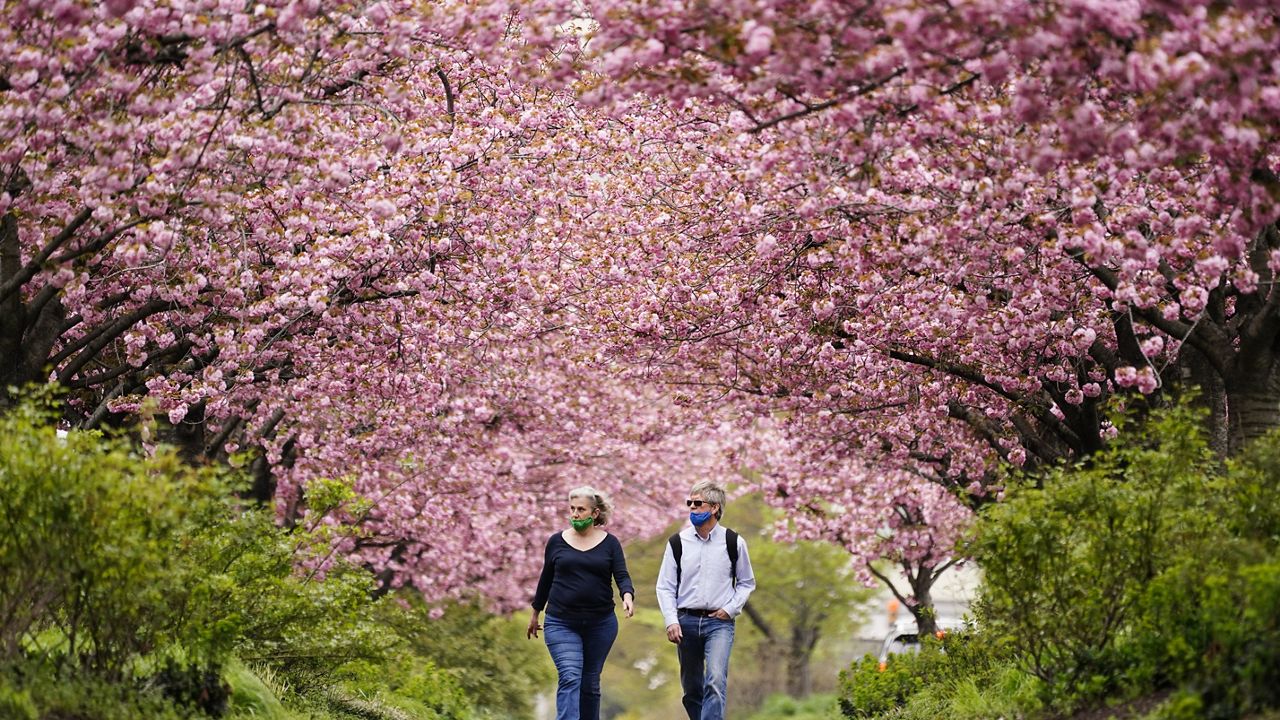As emergency rooms and intensive care units flooded with patients last Spring, there was tentative hope the summer months would help slow the march of the coronavirus.
But as the number of cases, hospitalizations and deaths surged in Southern and Western States, it became clear no such relief was coming.
“We saw some substantial surges in the summer,” said Dr. Anthony Fauci, director of the National Institute of Allergy and Infectious Diseases, during a recent White House COVID-19 Response Team press briefing. “I don't think we should even think about relying on the weather to bail us out of anything we're in right now.”
“Respiratory viruses tend to have seasonal trends, as do coronaviruses specifically,” said CDC Director Dr. Rochelle Walensky, in response to the same question. “I think we're going to have to be careful throughout the spring and the summer here.”
There is now a year of data to support the observation that SARS-CoV-2, the virus that causes COVID-19, doesn’t behave like other common cold or flu viruses.
There is mounting evidence that the environmental factors often amplified in warmer weather may help the virus move more efficiently from person to person -- and increase the likelihood that some will experience severe illness.
A growing number of researchers are finding evidence that exposure to air pollution exacerbates symptoms and increases mortality rates. In a commentary published in the Annals of the American Thoracic Society, Dr. Stephen Mein, a physician-researcher at Beth Israel Deaconess Medical Center, says the pandemic has put the need for clean air into sharp focus.
“Our body has multiple defenses to protect us against viruses and bacteria. Pollution exposure can cause many of these defenses to not work properly and allow viruses easier access into our bodies,” Dr. Mein told Spectrum News. “It is similar to defending a fortress but now the walls have multiple open doors and the guards waiting just inside the walls are using less effective weapons to fight off that attack.”
The real issue may be that the warmer weather could worsen the response to the coronavirus -- at least for those who are unvaccinated.
But Dr. Mein said it's complicated; “There are so many factors that go into disease transmission. Temperature likely has effects on virus infectivity, pollution levels and individual behaviors, all of which can affect transmission in different ways.”
The presence of pollen in the air outside also increases as temperatures rise. Dr. Lewis Ziska, a plant physiologist and professor of environmental health sciences at Columbia University, says pollen, like pollution, can damage the surface cells of the lungs and respiratory pathways.
“It doesn't matter whether you're sensitive or suffer from allergies or not. It's simply something that occurs for both allergy and non-allergy sufferers,” Dr. Ziska told Spectrum News. “This is what we're seeing pollen can do.”
Dr. Ziska co-authored a research article published in the Proceedings of the National Academy of the Sciences of the United States which found a connection between high concentrations of pollen and increased COVID-19 infection rates around the globe.
“There is a very strong link between climate change and pollen. Pollen season is happening earlier, the amounts of pollen you're being exposed to are higher,” Dr. Ziska said. “We have some initial data suggesting that that will affect the immune system in a way that will potentially exacerbate COVID.”
The good news is that the COVID-19 vaccines now available can help change the potential impact of these dueling crises.
“The vaccine is a huge modifying factor,” Dr. Mein said. “t is the most effective tool we have to stop the spread of coronavirus and will make a much bigger difference in COVID transmission and outcomes than other factors, including air pollution.”
More studies are needed on all fronts. For now though, Ziska says the takeaway should be, keep wearing your masks as the weather warms, particularly if you are not vaccinated. Masks can keep out pollution and pollen.
“Another way to think about this, aside from the more wonky science part is this: What do you do when you have allergies? You're sneezing and coughing,” Dr. Ziska said. “How do you catch COVID?”
It’s all in the air.



